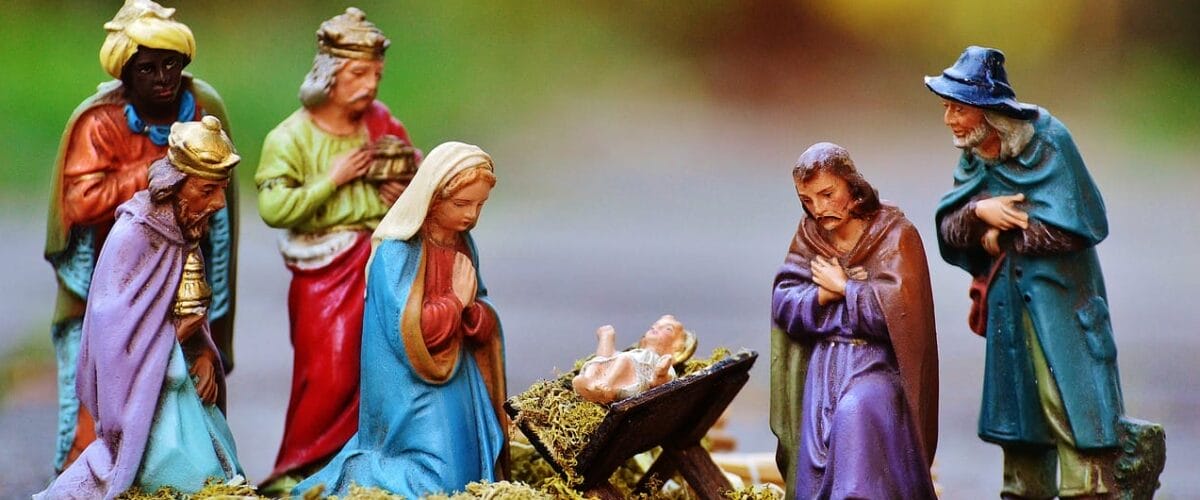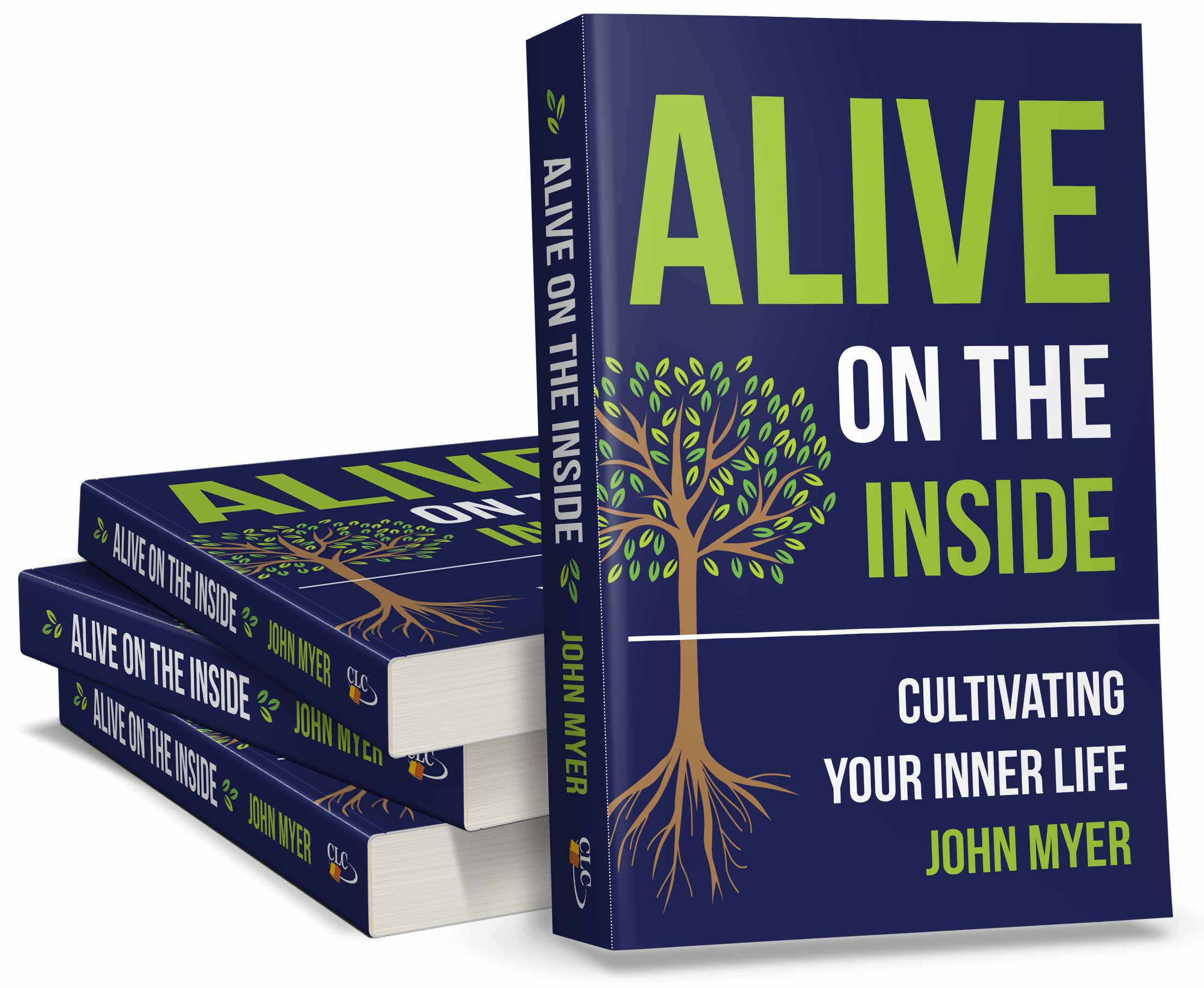The calendar says “Christmas,” but your life might not say it.
Things You Can’t Be Without During the Holidays
Try this for quirky: A special holiday banana bread recipe that calls for half an eggshell baked right into the batter. A particular family had handed this recipe down for decades until finally, the holiday baking task fell to a young woman. Wanting to make sense of it, she called her great-grandmother to ask about the eggshell.
The old lady chuckled. “Well, honey, one day I was cooking this bread, and half an eggshell accidentally fell in the batter. At dinner, somebody bit into it and the whole thing was so funny I decided to keep doing it.”
Apparently, the practice had continued long after it ceased being funny. Clueless kids and grandkids stopped asking why the shell was there and began assuming it added something to the bread itself. You could say the power of tradition made it indispensable.
Reality, of course, says otherwise. Shell-less bread is easier to eat. You can’t lose by subtracting it from the recipe.
In a weird twist, some folks over the Christmas holidays throw out the bread and keep the shell. That is, they minimize Christ and maximize the cultural accessories of Christmas. If you wonder how people can celebrate Christmas without loving Jesus following Him or even believing in Him, therein lies the secret: simply siphon off Christ until you’re comfortable with what’s left—holiday trees, egg nog, lights, and elves.
But when you banish from your mind the theology of Christ’s coming, all the power goes out the door with it. That’s part of the reason why during this time of year, suicides go up and sins multiply. Christmas cultural accessories are void of power. Tinsel doesn’t save. Only Jesus Himself can do that.
What You Think You Know Can Hurt You
Rather than try to pickle Christ’s birthday in a once-a-year container, we Christians preserve the freshness of it by currently participating in it.
But here’s the first thing we need to know: ignorance stifles participation.
Peter stood up in front of a Jewish audience right after they had crucified Jesus and said,
“And now, brothers, I know that you acted in ignorance, as did also your rulers. Acts 3:17
Peter isn’t letting the Jews off the hook here. He’s telling them that when they treated Jesus the way they did, it wasn’t because of their enlightenment or superior education. It was plain old ignorance.
And there are a lot of different kinds. Genuine ignorance means you honestly don’t know there’s something you need to know. Willful ignorance means you don’t want to know what you need to know. But another, which especially affected the Jews, is presumptive ignorance, meaning you think you know but you don’t.
The Jews lived in an environment saturated with scriptural study and religious pursuit. Their leaders were well-trained. Some of the scribes had near photographic memory. How could anybody be wrong about that carpenter from Nazareth? Yet when the ignorance train left the station, it was loaded with experts. Presumption, pride, and blindness make a deadly trio.
Living this type of presumptive religious life is like leaving the plastic wrapper open on a loaf of bread and then returning after a week to make a sandwich. The bread is as brittle and stale as flour-enriched particle board. Since there’s no mystery, there’s no revelation. Since there’s no revelation (i.e. seeing the relevance of what the biblical writers wrote), there’s just the Bible as a Toyota manual.
Yeah, Yeah, I Already Know That
This always happens when Christians think they’ve mastered truth. I had a seminary professor who said, “Frankly, I feel awkward when referring to a program called ‘Masters of Theological Studies.’ You don’t master the truth. It masters you.” The cultural accessories that relentlessly flow around us assure us otherwise.
Presumptive ignorance might not need an august springboard like systematic theology, only a “Jesus Calling” Devotional, church attendance, and praying at mealtime in Burger King. With all those kudos, there’s no need to dig deep.
The same goes for the incarnation of Christ. We’re on it The stockings are hung by the chimney with care and we’ve been listening to Christmas music for weeks now. Incidentally, though, even our music gives some indication of needed depth.
“We three kings of Orient are…”
But there weren’t necessarily three (the Bible never gives a number), and they weren’t kings (they were called magi, or wise men). Nor did they show up the night Jesus was born. The shepherds came, but the wise men didn’t get there until two years later when Jesus was a toddler living with Joseph and Mary in a house. This means the nativity scenes typically get it wrong.
I’m not interested in picking apart the foils of Christmas, but if we can’t get it right in the small things, there’s a good chance we’re glossing over the big ones as well. It all proceeds from the presumption that this is well-traveled territory, and therefore needs no further exploration. The moment your heart adopts that attitude, you leave the bread wrapper open.
Important People Wanted What You Have
Here’s a sobering reminder: Other people have wanted what we’re careless with. A repetitive thought runs through Peter’s ministry that confirms this fact.
18 But what God foretold by the mouth of all the prophets, that his Christ would suffer, he thus fulfilled.
24 And all the prophets who have spoken, from Samuel and those who came after him, also proclaimed these days. (the days you’re living in)
Acts 10:43To him [Jesus] all the prophets bear witness that everyone who believes in him receives forgiveness of sins through his name.”
Let’s tune in for a more focused hearing of what the prophets were saying about Christ.
Haggai said the desire of all nations would come.
Micah said He’d be born in Bethlehem.
Isaiah said He’d be born of a virgin, be a lowly suffering servant, and at the same time be the mighty God.
Jeremiah said He would be the righteous branch of God.
Malachi said a messenger would come first and then He would come.
Moses said He would be a prophet so great, that whoever wouldn’t listen to Him would be destroyed.
Zechariah said He would be a king coming on a donkey,
David said His hands and feet would be pierced, but he would be raised from death and made king.
Daniel said He would be killed, would be given all authority, and then be a rock smashing all the nations and filling the whole earth.
Ezekiel said He would be the shepherd who feeds the flock of God.
Jonah lived out a type of Christ by dying (being swallowed by a fish), rising (being spat out), and preaching a gospel that would be received by the nations (the worst one, Assyria, repented).
Nahum said feet were coming on the mountains bringing good news.
Habbakuk said we would become righteous through hearing that message and having faith in the Person of whom the message spoke.
Joel said we would call upon Him in order to be saved.
Hosea said those who were not the people of God would become sons of the living God.
Zephaniah said the One who was to come would bring the Day of the Lord, judging all evil, and sweeping the earth clean.
Obadiah said the resulting kingdom would be the Lord’s.
After considering this overview of prophetic testimony, it becomes apparent that half the Bible looks forward to the other half. The Old and New Testaments aren’t two separate, independent books under one cover. One exists to point toward the central character in the other one. The Old Testament attitude was one of powerful anticipation not only on the part of the prophets but also the God who spoke through them.
I remember a movie theater in my hometown called The Paramount. It had been built in 1930, so by the time I started to frequent it in the 70s, a predictable faint musty odor had begun to overtake it. The interior had aged under the beating that thousands of patrons had dealt it. Regardless, the interior was different from the other movie venues in town.
The décor of ornate wood, balcony, red velvet chairs, high ceilings, and thick drapes on either side of the screen, gave it an overall sense of grandeur. That’s much different from theaters today that pay almost all their attention to function, funneling patrons to the popcorn counter and then off to hallways leading to a hive of separate screens.
During the days of the great depression, theaters were constructed like palaces. Form, not just function, was important. You were supposed to pay your twenty-seven cents (expensive for that time period) and be able to step into another world, escaping the drab, depressing gray world outside. Once inside, the lavish surroundings contrasted the breadlines and poverty. One could feel a sense of hope, even if it only lasted for a couple of hours.
When the prophets saw into the future glories of Christ, they briefly tasted the greatness of what it would be like on the other side of His coming.
What they anticipated, you currently have. Put another way, they wished they could be you, on your worst day. Imagine David or Ezekiel approaching Jane Doe, the typical New Testament believer. “Tell me,” David says, “What is it like now that Messiah has come? How has it changed your morning commute, your life as a mom, and your daily experience?” “Yes,” says Ezekiel, “Now that Messiah has come and you have the Holy Spirit within you, it must be amazing!”
The more these prophets ask with apparent envy, the more awkward and embarrassed Jane feels. It hasn’t occurred to her that she’s really supposed to live as though Christ has come. Many of us have defaulted to a life lived as though nothing has happened. We’re in the Old Testament, still looking forward to a time of free forgiveness, when God will have a relationship with us and use us in His plan. That attitude is one of anticipation. But since we already have these things, we’re supposed to live in an era of participation.
Time to Put Our Foot Down
Peter told his Jewish listeners, 19 Repent therefore, and turn back, that your sins may be blotted out, 20 that times of refreshing may come from the presence of the Lord, and that he may send the Christ appointed for you, Jesus.
If they repented and turned, they would get what they never had, which are the very things we have now—forgiveness of sins, freshness from the presence of the Lord, and a hopeful expectation of Christ’s second coming. If you live and labor while sensing a bridge out because of sin, you don’t have to. If you feel religiously stale rather than the fresh presence of Christ, you’re being shortchanged. If you dread rather than hope for His return from heaven, that’s not what God wants for you.
That’s not life as if Christ has come.
It may be time to tell the Lord you want to live what He died to give.
Purchase John’s new book here!
This is an updated edition of a post originally published on John Myer
Featured Image by Alexa from Pixabay





















Comments are closed.